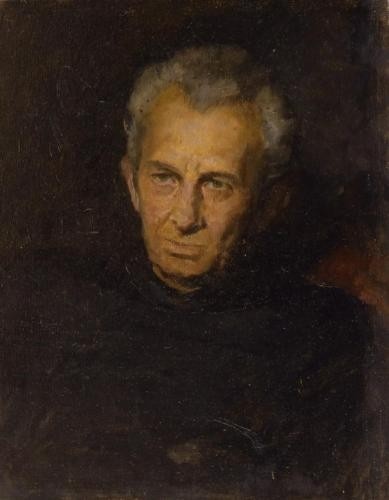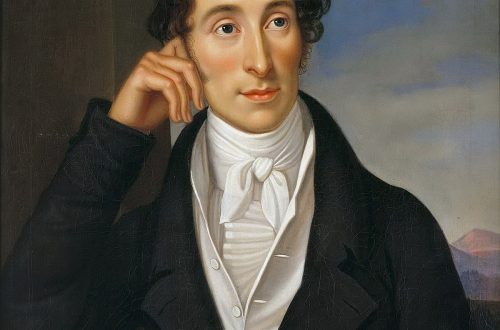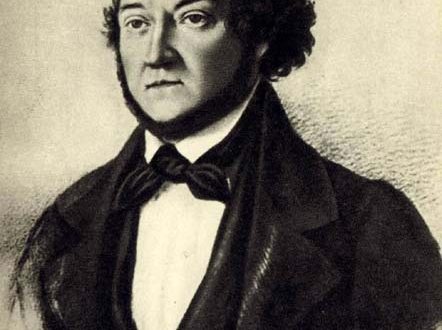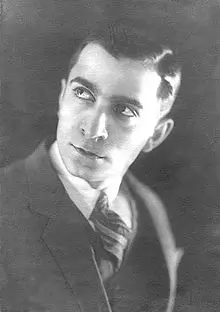
Karen Surenovich Khachaturian |
Karen Khachaturian

The first success came to K. Khachaturian in 1947 in Prague, when his Violin Sonata was awarded the First Prize at the World Festival of Youth and Students. The second success was the choreographic fairy tale Chippolino (1972), which went around almost all the ballet scenes in our country and was staged abroad (in Sofia and Tokyo). And then comes a whole series of achievements in the field of instrumental music, which allow us to judge the talent of a bright, serious, large-scale. The work of K. Khachaturian can be attributed to the significant phenomena of Soviet music.
The composer organically develops the traditions of Soviet art, inherited from his teachers – D. Shostakovich, N. Myaskovsky, V. Shebalin, but creates his own original artistic world and, among the stylistic diversity of today’s musical creativity, is able to defend his own path of artistic search. K. Khachaturian’s music captures a whole, multifaceted life perception, both emotional and analytical, a huge store of faith in a positive beginning. The complex spiritual world of a contemporary is the main, but not the only theme of his work.
The composer is able to get carried away with all the immediacy of a fairy tale plot, while revealing gentle humor and ingenuity. Or be inspired by a historical theme and find a convincing tone of objective narration “from the scene.”
K. Khachaturian was born into a family of theatrical figures. His father was a director, and his mother was a stage designer. The creative atmosphere in which he moved from a young age affected his early musical development and multilateral interests. Not the last role in his artistic self-determination was played by the personality and work of his uncle A. Khachaturian.
K. Khachaturian was educated at the Moscow Conservatory, which he entered in 1941. And then – service in the Song and Dance Ensemble of the NKVD, trips with concerts to the front and to front-line cities. The student years date back to the post-war period (1945-49).
Creative interests of K. Khachaturian are versatile.
He writes symphonies and songs, music for theater and cinema, ballets and chamber-instrumental compositions. The most significant works were created in the 60-80s. Among them are the Cello Sonata (1966) and the String Quartet (1969), about which Shostakovich wrote: “The quartet made a strong impression on me with its depth, seriousness, vivid themes, and amazing sound.”
A notable phenomenon was the oratorio “A Moment of History” (1971), which tells about the first days after the assassination attempt on V. I. Lenin and is designed in the spirit of a documentary chronicle. The basis for it was the original texts of that time: newspaper reports, the appeal of Y. Sverdlov, letters from soldiers. 1982 and 1983 were extremely fruitful, giving interesting works in the genres of instrumental music. The Third Symphony and the Cello Concerto are a serious contribution to the symphony fund of Soviet music in recent years.
These works embodied the thoughts of a wise artist and man about his time. The composer’s handwriting is marked by the power and expression of the unfolding of thought, melodic brightness, mastery of the development and construction of the form.
Among the new works of K. Khachaturian are “Epitaph” for string orchestra (1985), ballet “Snow White” (1986), Violin Concerto (1988), one-movement piece “Khachkar” for symphony orchestra dedicated to Armenia (1988).
The music of K. Khachaturian is known not only in our country, but also abroad. It sounded in Italy, Austria, USA, Czechoslovakia, Japan, Australia, Bulgaria, Germany. The resonance caused by the performance of K. Khachaturian’s music abroad attracts the attention of the musical community of different countries to him. He was invited as a member of the jury of one of the competitions in Japan, commissioned by the Vienna Society of Alban Berg, the composer writes a string trio (1984), maintains creative contacts with foreign performers, and creates the National Anthem of the Republic of Somalia (1972).
The main quality of K. Khachaturian’s music is its “sociability”, live contact with the listeners. This is one of the secrets of her popularity among numerous music lovers.
M. Katunyan





